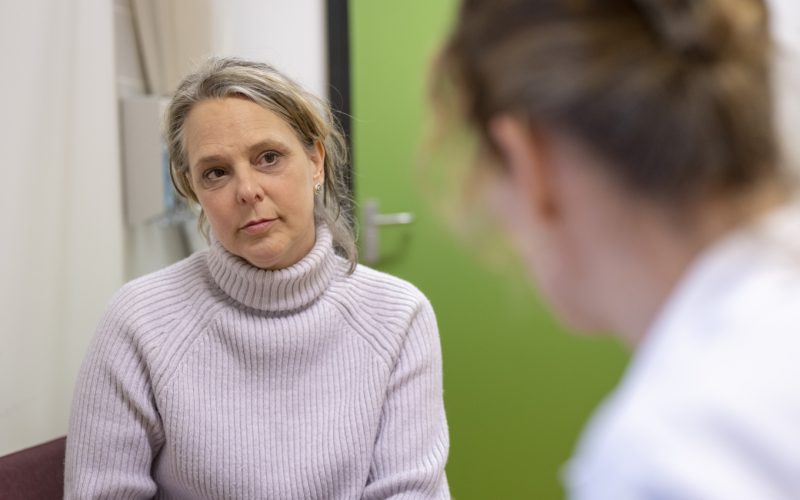Can AI predict how well someone with psychosis will recover? That question was central to the PhD research of psychiatrist Violet van Dee. She discovered that artificial intelligence (AI) can now make predictions that are about as accurate as those of psychiatrists. In some complex cases, a digital psychiatrist even performs better. Her research at UMC Utrecht, on which she obtained her PhD on July 16, shows that AI can become a valuable sounding board for psychiatrists in the future.
Mental health care has long been searching for ways to offer more personalized care. With the advent of AI, it has become possible to detect patterns in large amounts of patient data. But does that also work in the complex, human practice of psychiatry? Violet van Dee investigated this using data from people who experienced a first psychotic episode. She compared the predictions of a specially trained AI model with those of 24 psychiatrists.
Both the AI and the psychiatrists predicted psychological and social recovery with varying success. For just over half of the patients, both were able to accurately predict whether symptoms would improve. For functional recovery – such as living independently or being able to work – the accuracy was higher: three out of four predictions were correct. Notably, there was a specific group of patients for whom fewer than half of the psychiatrists correctly assessed the outcome, while the AI model did make accurate predictions in these cases. Precisely in such complex cases, AI can be a valuable addition. However, psychiatrists seem to struggle in practice to recognize when they should rely more on the model’s judgment.
For clinical use, it is essential that psychiatrists understand how the model reaches its predictions. “It shouldn’t be a black box,” says Violet. “As a doctor, you want to know: why does this model say this patient has a high chance of recovery?” That’s why the study also looked at how to make the model more transparent. It not only provides a prediction but also indicates how confident it is in that prediction. A more advanced version of the model, trained on data from hundreds of patients over multiple time points, reported confidence in its prediction for about half of the patients – achieving an accuracy of over 80% in those cases.
Although the model can also estimate the effect of individual factors on recovery, translating it to clinical practice remains challenging. There are several reasons for this. The model might advise adjusting a certain factor to increase the chance of recovery, but in reality, that may be difficult or unfeasible for a patient. Some factors, such as age or gender, cannot be changed. Others are strongly interrelated, making it hard to adjust just one factor. Due to these and other complexities, the model’s predicted effects may turn out differently in practice.
The research by Violet and colleagues emphasizes that AI is not a replacement for psychiatrists, but rather a tool. “Think of it as a quick second opinion,” says principal investigator and PhD supervisor Wiepke Cahn. “For patients you’re unsure about, the model can offer a different perspective.” In practice, it’s important that the patient determines which outcomes matter most. What someone finds important in their recovery varies from person to person. This was made clear through conversations with a panel of experts by experience, consisting of patients and family members, who were involved in the research process.
Violet van Dee
Violet van Dee earned her PhD on July 16, 2025, at Utrecht University for her research within the Psychosis Prognosis Prediction Project at UMC Utrecht. She now works as a psychiatrist at St. Antonius Hospital. Her research shows that AI technology—if used transparently and responsibly—can be a valuable addition to mental health care. Wiepke: “The future lies in collaboration between human and machine. That’s how we can achieve truly personalized care.”

